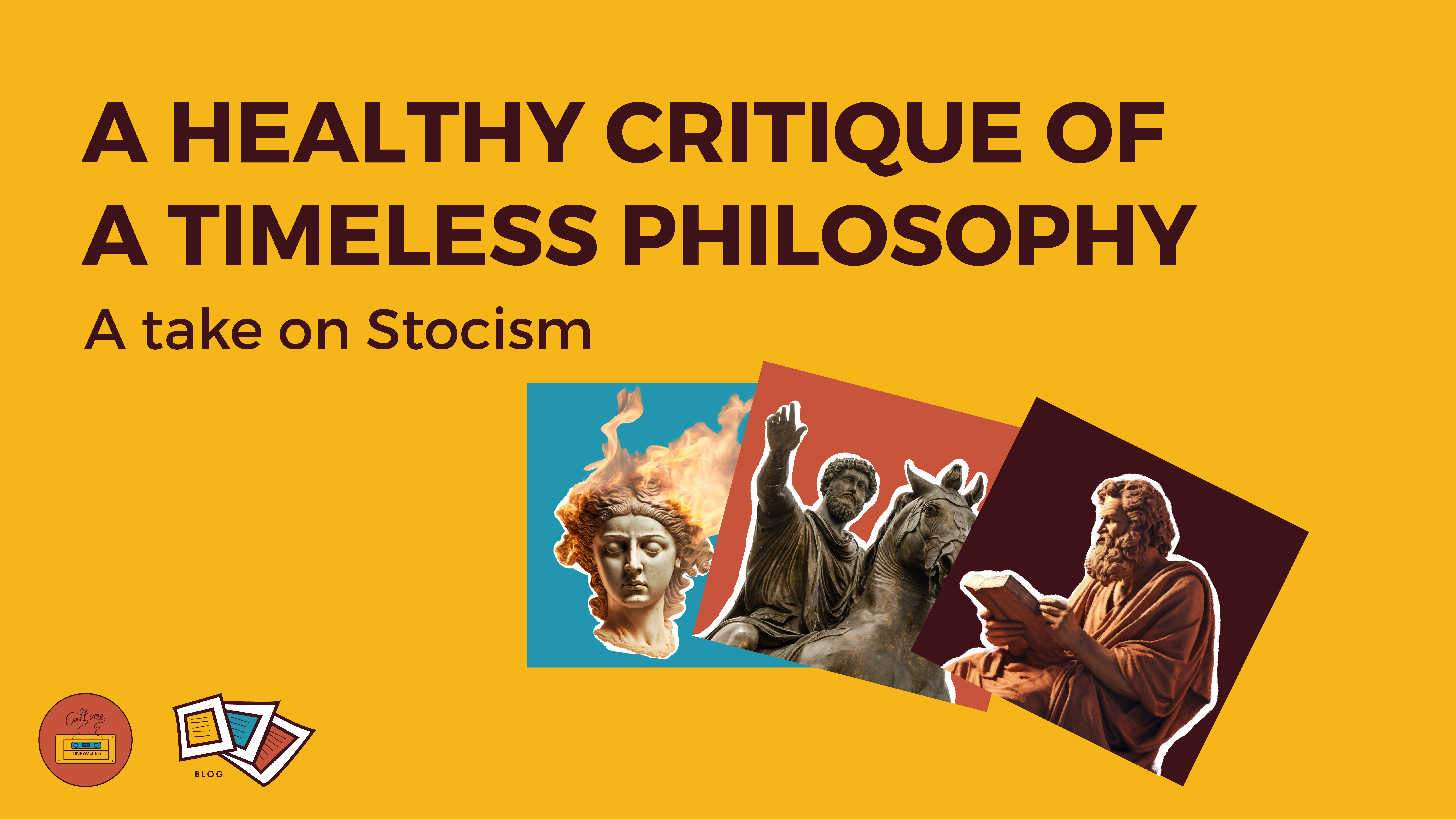
- Taylor Swift and Josh Garrels: Who Captivates You?
Music enriches our lives. It has the power to evoke new emotions, comfort us amid negative ones, and even shape our beliefs. And when musicians combine the right words with the right rhythm, they have the power to hold us captive.
In the contemporary music scenario, one of the most popular singers who wields such power over their audience is Taylor Swift. With her deeply captivating lyrical masterpieces, Taylor Swift is at the top of her musical stardom. She is currently the most popular musician in the United States, with the highest annual earnings since 2019. Her recent Eras tour concert generated 4.6 billion dollars in total consumer spending, with two billion dollars from ticket sales alone. Her success even impacted the US economy. She would surely be remembered as one of the greatest pop artists of the millennial and Gen Z generations.
Her fans, who popularly call themselves Swifties, explain why her music captivates them. Some laud her song-writing skills and how she can string words together to create a literary masterpiece. Others deeply appreciate her ability to turn words into catchy and amusing music. She often composes her music within normal chord progressions and standard pop music arrangements. Yet her genius lies in how she uses them to create “verbal melodies” that evoke deep and nostalgic feelings. She also creates characters in her songs, sometimes even placing herself as a character in the story. Her ability to reinvent herself, either through her music or in real life, made her a highly sensational popstar, influencing what her listeners believe about love, hope, failure, and friendship.
While Taylor’s ingenuity and her remarkable marketing skills made her a highly accomplished musician, her success was also tied to her ability to stay relevant. By creating characters and moods that her audience can deeply connect with, she found a way to connect with her fans. Through the words that she creatively and musically strung together, she not only let them experience her music but also participate in it. Even more so, she wrote lyrics that gave them a way to express the matters of their hearts. She exemplified what Ludwig Van Beethoven, the legendary musician and most admired composer in the history of Wester music, said, “What I have in my heart and soul- must find a way out. That’s the reason for music.” Through her music, Taylor gave her fans words they did not have to express feelings they could not express.
Another contemporary musician whose music is equally captivating but who chooses to remain on the sidelines of fame and stardom is Josh Garrels. He often maintained a marked distance from major record labels. Even though the contemporary Christian music (CCM) industry offered him opportunities to record his music on their label, he always declined them. For him, success came at its best when he gave away for free his breakout album- Love and War, and the Sea in Between- for a year. But like Taylor, he remains a prolific songwriter, a musical genius whose songs have captured the hearts and minds of a wide audience. He, too, would be remembered as one of the greatest musicians of our time, even if by a few people.
Josh’s deeply personal and introspective lyrics and exploratory musical arrangements showcase his musical ingenuity. His rich, soulful voice combined with his lyrics invites his listeners to wrestle with faith, doubt, and the mystery in-between. And he does more than turn his audience inward. He can turn them towards their heart’s deep longing for a world that is yet to come. While his music, like Taylor’s, offers comfort from negative emotions, evokes new ones, and influences his listener’s beliefs about the world, Garrels also consistently enables his audience to look beyond themselves. He invites them to be curious and to ask if there is hope, not merely amid pain but amid joy as well. His lyrics reflect C. S. Lewis’s insight on music, who said, “How is it that music can, without words, evoke our laughter, our fears, and our highest aspirations?” His music gave his fans words that not only reflect their deepest emotions but also their greatest aspirations, even ones that evoke hope for another world.
Taylor Swift and Josh Garrels are musical geniuses, and they offer the world a taste of joy in a world full of pain and suffering. As we delve into their musical worlds, we unravel not only the threads that bind their music but also the distinct narratives they craft, reflecting their unique understanding of the world. We experience how they craft meaningful and relatable lyrics that go beyond the surface and into the complexities of human emotions. We also see their power to shape their audiences’ perspectives about love, friendship, faith, and hope and stay relevant in the ever-changing music industry.
Yet Taylor’s message centres around the importance of self-expression and mirrors the emotional landscape of individuals in contemporary society. Her songs, despite their cathartic quality, turn her listeners’ attention inward and keep them there. On the other hand, Garrels’ songs reflect a worldview that goes beyond personal emotions and invites his listeners to explore faith and be strengthened in hope for a world beyond ours. As we navigate their musical journeys, which are rooted either in their personal narratives or spiritual experiences, we are left with the freedom to choose who captivates us.
- Are your feelings valid? Navigating Emotional Experiences in a “Feelings-Based” Culture
“Not all of your feelings are valid,” said Candace Owens, a conservative political commentator, author, and activist in America who blatantly opposed the country’s current cultural mood with her statement. She said this to refute the idea that we need to validate all of someone’s feelings if we are to interact effectively with them. For instance, Candace argues that if someone easily takes offense at our words or actions, even when we did not intend anything wrong, it isn’t necessary that we validate those feelings. She remarks that it is not only an unnecessary thing to do; it is also very exhausting.
Owens challenges the prevailing notion that we must consider all of our emotions as significant. It raises questions about the consequences of prioritizing feelings over the diverse facets that make us who we are. To fully understand the depth of Owens’ statement, we must examine the current global cultural mood, which is characterized by an unprecedented emphasis on emotions as behavior guides.
We have become a ‘feelings-based’ culture, and for good reasons. We now consider that emotions help us gauge our state of mind so that we can respond to situations appropriately. We understand that they indicate our loves, desires, and fears. In short, they point us to our deepest concerns. Yet, because we placed such a great emphasis on the significance of our feelings, we inevitably placed them above everything else that makes up the human experience. We no longer regard emotions as indicative of our deepest concerns. Instead, we are letting them ‘guide’ our behavior.
It’s crucial to think about Owens’ statement if we want to avoid falling victim to this current cultural mood. While it is unlikely that not all of our emotions are valid, it is true that not all of our emotions need to be expressed. In other words, since our feelings point us to what concerns us the most, it is important to acknowledge them, but it is even more important that we learn the skill to regulate them.
Dr. Ramani Durvasula, an expert psychiatrist and counselor, talks about how healthy people regulate their emotions. And she lists six major ways of managing our emotions. Emotionally healthy people express emotions appropriately; they own their emotions; they think before they express their feelings; they read their surroundings to figure out if it is appropriate to express their emotions in that moment; they acknowledge that the world does not revolve around their emotional experiences; and they do not put on a stoic attitude, but identify, recognize, and acknowledge their emotions. In other words, emotionally healthy people are skilled at managing their emotions for their own well-being and that of those around them.
While acknowledging the significance of emotions in unveiling our deepest concerns, Owens’ statement enables us to think before we let our feelings dictate our responses. Owens’ message becomes clear when viewed through the lens of emotional intelligence, as Dr. Ramani Durvasula explains. In striving for emotional health, the ability to regulate, express, and own our emotions emerges as an essential skill. We can prevent ourselves from succumbing to a culture that places the utmost importance on “feelings” by understanding that not all emotions call for expression and by developing the discernment to express our emotions appropriately. Instead, we could foster a culture that values emotional resilience—a culture that acknowledges the validity of feelings and has the power to regulate them.
- By Whose Power? Unlocking the Reality of Fighting Temptation
Palki Sharma Upadhyay, a renowned Indian journalist, in speaking of the cultural phenomenon of making new year’s resolutions, said, “As humans, we are notoriously bad at avoiding temptation.” Her statement captures the essence of the main reason why most people make resolutions with enthusiasm but fail to keep them. The sheer number of motivational videos about the best ways to make resolutions and stick to them suggests that most people do need a tremendous amount of motivation to keep their resolutions.
In a video on resolutions, the journalist points out the faulty approach to making resolutions and suggests a new way of making them. She argues that most people fail to keep their resolutions because they resolve to ‘not do something’ rather than to actively ‘do what they desire to do’. She gives the example of someone resolving to ‘cut down’ junk food to begin living a healthier lifestyle and argues that this is a faulty approach. People usually fail to keep this resolution because of their inability to avoid their temptation towards junk food. A workable resolution would be to resolve to start eating healthy. This gives people more scope to reach their goal of living a healthier life. The second approach works because, even though humans are bad at avoiding temptation, we are also wired to accomplish what we set our minds to.
The Christian life is a constant battle against temptation. Our sanctification in Jesus Christ is often not an easy journey, as it requires us to keep away from temptation and choose to obey God’s commands. Although we fight temptation through God’s power and not by our own willpower or strength, we are called to make efforts to resist temptation. And failure to do so often leads us down a road of despair. Despite this, we know that our holiness is God’s initiative and that he will complete the work he has begun in us. So, how can we participate in the work that God has initiated, especially with regards to the process of fighting temptation and becoming holy, just as our heavenly Father is holy?
We change our approach. If we are wired to accomplish what we set our minds to do, then it is only logical that our fight against temptation should not begin with setting our minds on avoiding temptation. Instead, when we set our minds on the promises and power of God, our strength to fight against temptation will flow from our experience of God rather than from our experiences of temptation. In other words, our approach to resolving to obey God and fight temptation should stem from our experience of God’s love. As we enter a new year, most of us might resolve to eat healthier, work harder, or even love people better. But our resolve to obey God’s initiative to make us holy is an invaluable resolution, should we choose to resolve it. If we do so, then it would be wise to reconsider our approach to it.
The journey of sanctification and resisting temptation in the Christian life is undeniably challenging. Palki Sharma Upadhyay’s insights on the human tendency to struggle with avoiding temptation resonate with the Christian experience, where the battle against sin is an integral part of the faith journey.
Upadhyay’s alternative approach to making resolutions—shifting the focus from what to avoid to actively pursuing what one desires—finds resonance in the Christian context. Rather than fixating solely on resisting temptation, believers can redirect their attention to the promises and power of God. By immersing themselves in the transformative experience of God’s love, they can draw strength and inspiration to navigate the challenges of sanctification.
The Christian resolve to obey God’s initiative in the pursuit of holiness becomes a profound resolution when grounded in a deeper understanding of God’s love. It is not merely a commitment to avoid sin but a conscious choice to actively participate in the ongoing work that God has initiated in the believer’s life. This paradigm shift allows individuals to approach their journey of faith with a positive and empowering mindset, deriving strength from their relationship with God rather than being solely focused on the daunting task of resisting temptation.
As we step into a new year, embracing the transformative power of God’s love provides a solid foundation for the resolution to pursue holiness, making it a journey marked by hope, resilience, and an unwavering trust in the One who is faithful to complete the work He has begun in us. In this way, resolutions become not just self-imposed goals but a collaboration with God, anchored in the assurance that God’s grace empowers us to become holy, even as our heavenly Father is holy.












